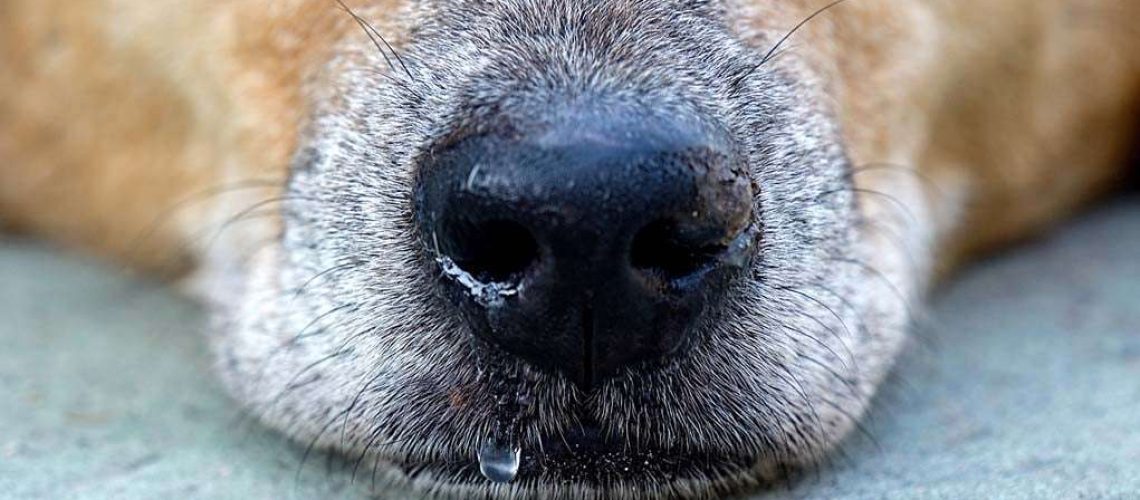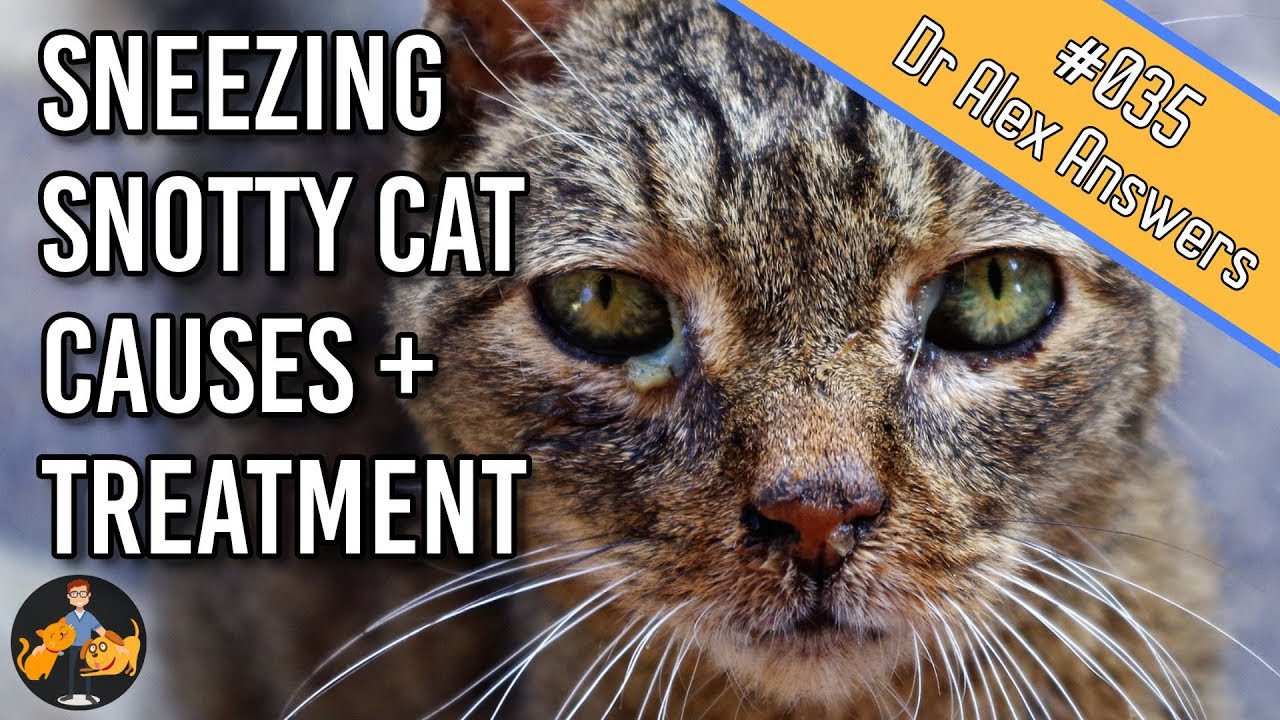Key Takeaways:
- A runny nose in dogs can be caused by various factors such as allergies, infections, foreign objects, or dental issues.
- Dogs with a runny nose may exhibit symptoms like sneezing, nasal discharge, coughing, and difficulty breathing.
- It is essential to consult a veterinarian if your dog has a persistent runny nose to determine the underlying cause and provide appropriate treatment.
- Allergies are a common cause of runny noses in dogs, and identifying and avoiding the allergen can help alleviate the symptoms.
- Regular veterinary check-ups, proper hygiene, and a balanced diet can help prevent respiratory issues that may lead to a runny nose in dogs.
Introduction:
Do you ever wonder why your furry friend sometimes has a runny nose? Well, get ready to uncover the secrets behind this common canine condition! Understanding the reasons why your dog has a runny nose can not only help you provide better care for your four-legged companion but also ensure their overall health and happiness. So, if you're curious about what causes that sniffly snout, keep reading as we dive into this fascinating topic.
Having a dog with a runny nose may seem like a minor inconvenience, but it's essential to grasp the underlying reasons behind it. By understanding this topic, you'll be equipped to take proactive steps in keeping your pet healthy and comfortable. Imagine being able to identify potential health issues early on and prevent them from worsening! Plus, by learning more about your dog's runny nose, you'll strengthen the bond between you and your loyal companion.
Now, let's explore the world of runny noses in dogs together. We'll unravel the various factors that contribute to this phenomenon and shed light on some surprising statistics along the way. Get ready for an eye-opening journey that will leave you well-informed and prepared to tackle any sniffle-related challenges that come your way!
So, without further ado, let's embark on this enlightening adventure into the intriguing realm of why our beloved dogs have runny noses.
Common Reasons for Dogs Having a Runny Nose
A runny nose in dogs can be caused by various factors. One common reason is a respiratory infection, which can be caused by viruses or bacteria. These infections can lead to inflammation of the nasal passages and an increase in mucus production, resulting in a runny nose. Another possible cause is allergies. Just like humans, dogs can also have allergic reactions to certain substances such as pollen, dust mites, or certain foods. When exposed to these allergens, their bodies release histamines, which can cause nasal congestion and a runny nose.
In some cases, foreign objects stuck in the nasal passages can also lead to a runny nose in dogs. This could happen if your dog sniffs or snorts something small enough to get lodged inside their nostrils. Additionally, certain medical conditions like dental problems or tumors in the nasal cavity can cause persistent nasal discharge.
How a Dog's Runny Nose Helps Fight Infections
A dog's runny nose may seem bothersome, but it actually serves an important purpose in fighting off infections. The mucus produced by the nasal passages helps trap and remove harmful particles such as bacteria, viruses, and allergens from the air your dog breathes. The mucus contains antibodies and enzymes that work together to neutralize these pathogens and prevent them from entering further into the respiratory system.
When your dog has an infection or encounters allergens, their body increases mucus production as a defense mechanism. The excess mucus helps flush out these irritants and prevent them from causing further harm. So while it may be messy and inconvenient for your dog to have a runny nose, it's actually their body's way of protecting itself.
Allergies as a Possible Cause of a Dog's Runny Nose
Allergies can be a common cause of a dog's runny nose. Just like humans, dogs can develop allergies to various substances in their environment. Common allergens for dogs include pollen, dust mites, mold spores, certain types of food, and even flea bites. When a dog is exposed to an allergen that triggers their immune system, it can lead to symptoms such as sneezing, itching, watery eyes, and a runny nose.
If you suspect that your dog may have allergies causing their runny nose, it's important to identify and minimize their exposure to the allergen. This may involve keeping your dog indoors during peak pollen seasons or using hypoallergenic bedding materials. In some cases, your veterinarian may recommend allergy testing or prescribe medications such as antihistamines or corticosteroids to help manage your dog's allergic reactions.
Potential Health Concerns of a Persistent or Severe Runny Nose in Dogs
While a runny nose is often not a cause for immediate concern in dogs, there are some situations where it may indicate an underlying health issue. If your dog's runny nose persists for more than a few days or becomes severe, it's important to consult with your veterinarian.
Some potential health concerns associated with persistent or severe runny noses in dogs include:
- Sinus infections: Prolonged nasal discharge can sometimes indicate an infection in the sinuses.
- Dental problems: Dental issues such as infected teeth or gum disease can lead to nasal discharge.
- Nasal tumors: Tumors in the nasal cavity can cause chronic nasal discharge and other respiratory symptoms.
- Nasal foreign bodies: If your dog has sniffed or snorted something that got stuck in their nasal passages, it can cause ongoing nasal discharge.
If you notice any concerning symptoms or if your dog's runny nose is accompanied by other signs of illness such as coughing, difficulty breathing, or loss of appetite, it's best to seek veterinary attention for a proper diagnosis and appropriate treatment.
Home Remedies to Help Alleviate Your Dog's Runny Nose
While it's important to consult with your veterinarian for proper diagnosis and treatment of your dog's runny nose, there are some home remedies that may help alleviate their symptoms:
- Keep your dog hydrated: Make sure your dog has access to fresh water at all times to help thin out the mucus and keep them hydrated.
- Use a humidifier: Adding moisture to the air can help soothe irritated nasal passages. Consider using a humidifier in the room where your dog spends most of their time.
- Provide steam therapy: Create a steamy environment by running a hot shower and bringing your dog into the bathroom for a few minutes. The steam can help loosen congestion.
- Clean their nose gently: Use a soft cloth or tissue dampened with warm water to gently clean any discharge from your dog's nose. Avoid using harsh chemicals or irritants.
- Avoid potential allergens: If you suspect allergies are causing your dog's runny nose, try to minimize their exposure to known allergens. This may involve keeping them indoors during high pollen seasons or using hypoallergenic bedding materials.
When to Seek Veterinary Attention for Your Dog's Runny Nose
In most cases, a runny nose in dogs will resolve on its own or with basic home care. However, there are certain situations where it's important to seek veterinary attention:
- If the runny nose persists for more than a few days or becomes severe
- If your dog is showing other signs of illness such as coughing, difficulty breathing, or loss of appetite
- If there is blood in the nasal discharge
- If your dog has a history of chronic respiratory issues
- If you suspect your dog may have a foreign object stuck in their nasal passages
Your veterinarian will be able to evaluate your dog's symptoms, perform any necessary tests or examinations, and provide appropriate treatment based on their findings. It's always better to err on the side of caution and seek professional advice when it comes to your pet's health.
In conclusion, there are several reasons why your dog may have a runny nose. It could be due to allergies, infections, or even foreign objects stuck in their nasal passage. If your dog has a persistent runny nose, it's best to consult with a veterinarian for proper diagnosis and treatment.
How do you treat a dog with a runny nose?
The appropriate treatment for a dog's runny nose depends on the underlying cause. If allergies are to blame, giving the dog allergy medicine can help alleviate symptoms. If an infection is causing the issue, antibiotics may be effective. However, it is important to consult with a veterinarian before giving any medication to your dog.
Why does my dog have a runny nose and keep sneezing?
Nasal discharge and sneezing can indicate viral infections or allergies, but they can also be symptoms of parasitic infections, more serious infectious diseases like distemper, or nasal cancers. It is important to evaluate the type and severity of the discharge in order to decide on the appropriate course of action.
Why does my dog have a runny nose and wont eat?
If your dog is experiencing symptoms such as sneezing, coughing, a runny nose, decreased appetite, and increased sleepiness, they may have a cold. However, these symptoms can also be indicative of other serious conditions such as Canine Distemper, kennel cough, and canine flu. It is also possible that parasites or allergies could be causing these symptoms, so it is important to take your dog to the veterinarian for a proper diagnosis.
Do I need to worry if my dog has a runny nose?
In most cases, you don't need to be concerned about a dog's clear nasal discharge unless it persists or is accompanied by other symptoms. However, if the discharge is cloudy, yellow, green, or has a strong odor, it is always a reason to seek veterinary advice. When unsure, it is best to consult with your veterinarian.
Do dogs get sick with runny nose?
Dogs and cats can experience colds, and their symptoms are similar to those of humans. Both may have nasal discharge, difficulty breathing due to congestion, sneezing (especially with wet sneezes), watery eyes, and lethargy (increased napping and low energy). These cold symptoms typically last for 5-10 days.
How do I know if my dog has nasal mites?
The typical symptoms of a nasal mite infestation include nosebleeds, sneezing, rapid sniffing of air, difficulty smelling, itching in the face, nasal discharge, difficulty breathing, shaking the head, and high-pitched, noisy breathing.

















